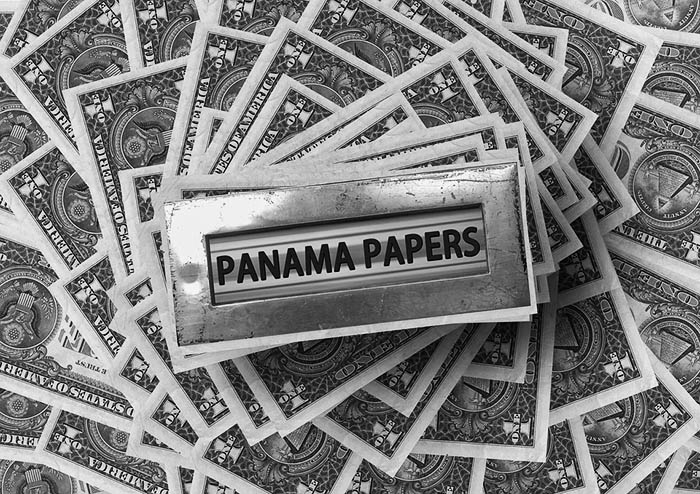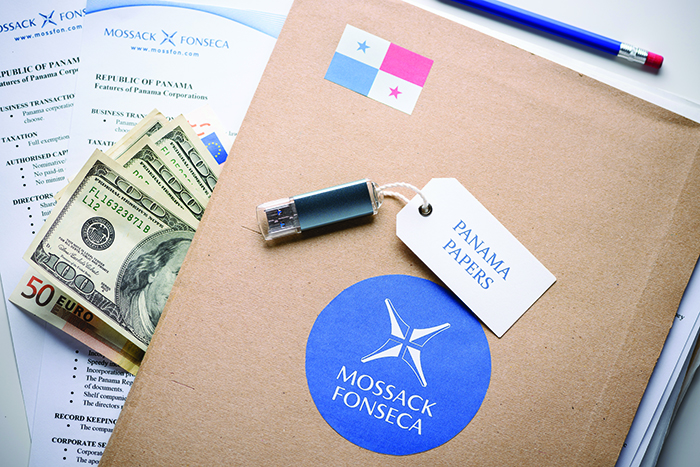 “Even though it’s not surprising, it helps us,” said Wolfgang Schauble, German Finance Minister in regards to the 11 million-document leak from Panamanian corporate service provider Mossack Fonseca.
“Even though it’s not surprising, it helps us,” said Wolfgang Schauble, German Finance Minister in regards to the 11 million-document leak from Panamanian corporate service provider Mossack Fonseca.
Tax evasion and money laundering are no political surprise, but through the Panama Papers, concrete evidence can provide citizens the power to limit financial corruption in politics.
The Panama Papers, as the details of over 214,000 offshore companies has come to be known, have broken international headlines throughout the past week. With new information daily, the scrutiny of public officials around the globe has intensified.
Mossack Fonseca had exposed the relationships between five prominent political leaders in the countries of Argentina, Iceland, Saudi Arabia, Ukraine and the United Arab Emirates.
The International Consortium of Investigative Journalists continues to aid in the deciphering of more than two and a half terabytes of data dating back to the 70’s.
The Panama Papers have confirmed the suspicions of people across the globe—“Swiss bank accounts” are ever popular and are tied to people in positions of power.
Some have not taken well to the Papers’ publication. High-ranking Chinese officials, including former senior leaders of the Politiburo of the Communist Party have been exposed for their participation in offshore banking and asset manipulation.
The Chinese government has acted to protect current General Secretary of communist Party Xi Jinping through the continued censorship of all content relating to the Panama Papers.
China has a strong history of government regulation of media. From the vehement obscuring and censoring of Tiananmen Square atrocities to Facebook and Google limitations, to the imprisonment of journalists, the Panama Papers continue to shed light into oppressive governments as they try to squelch its details.
China’s foreign ministry has since referred to the data in the reports as “groundless.”
David Cameron, Prime Minister of the UK admitted he had profited some 30,000 Euros from his late father’s offshore account.
Calls of resignation have been issued for Cameron, Ukrainian President Petro Poroshenko, Iceland Prime Minister Sigmundur Davíð Gunnlaugsson and many more officials—but in many cases, the off shore accounts are perfectly legal.
Poroshenko took to Twitter where he tweeted, “I believe I might be the first top official in Urkaine who treats declaring of assets, paying taxes, [and] conflict of interest issues seriously.”
Bloomberg appraises Poroshenko’s personal fortune at around $720 million.
Confusion continues in Iceland after Gunnlaugsson claims he did not resign in a press release to international media. Gunnlaugsson claims he’s merely stepping aside for an “unspecified” amount of time after the findings of the Panama Papers concluded he had a large sum of funds tucked away in the British Virgin Isles that he had not declared as an asset. This comes after controversial decisions after the collapse of many Icelandic banks.
Canada and the United States have announced plans to further legislation to crack down on tax evasion. Canadian Prime Minister Justin Trudeau denounced the claim that he had money in offshore accounts.
Although American officials and corporations are seemingly absent from the original, viral release of the Panama Papers, the ICIJ continues to investigate—recently finding around 1,100 companies set up by Mossack Fonseca are in America.
The majority of those entities were formed from one small building, not far off from the Vegas Strip in Nevada, according to USA Today.
What will the journalists uncover? Expect the Panama Papers to be the biggest thing since Edward Snowden’s WikiLeaks.
If the results follow the pattern, the Panama Papers may reach the platform of the Presidential Election—as a topic of discussion in policy, or as a concern from the public.

